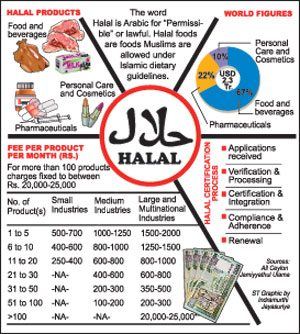Halal Haram List Of Ingredients In Mmr
A comprehensive list of Halal and Haram ingredients starting with the letter A. The list contains common uses of the ingredients in the food/medicine/cosmetical industries, sources and halal and haram status. Acesulfame Potassium (Halal) Acesulfame Potassium (K is the symbol for potassium) or Ace K, is a calorie-free sugar substitute (artificial sweetener), and marketed under the trade names Sunett and Sweet One. Acesulfame potassium is made from a process that involves the transformation of an organic intermediate, acetoacetic acid, and its combination with the naturally occurring mineral, potassium, to form a highly stable, crystalline sweetener. Acetic acid (Halal) Acetic acid is a colourless liquid organic compound.
Jun 9, 2016 - Use of Vaccines Containing Porcine Gelatin. Click here for list of vaccines with porcine-containing gelatin. It should be noted that according to Jewish laws, there is no problems with porcine or other animal derived ingredients in non oral products. This includes vaccines, injections, suppositories, creams. Topic: MMR jab containing pork derived gelatin! Halal, or lawful, to eat. Many of the vaccines contain haram ingredients. Generally, patients never see the full ingredients list for vaccines. He declined to comment on when the company first began using porcine gelatin in MMR. He says that if you find a trace of it (athaar), or its color, or its smell (of this haraam ingredient), than you cannot eat it, the whole food is not halal.
Acetic acid is produced industrially both synthetically and by bacterial fermentation. Neptune Rtp Keygen Idm. About 75% of acetic acid made for use in the chemical industry is made by the carbonylation of methanol.

Halo 3 Pc Download Kickass there. Used as a preservative in food. Acetone (Halal) Acetone is used in a variety of general medical and cosmetic applications and is also listed as a component in food additives and food packaging. Dermatologists use acetone with alcohol for acne treatments to peel dry skin.
Acid Casein (Doubtful) The skim milk may be acidified to produce acid casein or treated with an enzyme, resulting in the so-called rennet casein. The precipitated casein curd is separated from the whey, washed and dried. Water-soluble derivatives of acid caseins, produced by reaction with alkalis, are called caseinates.(Source: nzic.org.nz). Consume if Halal or Kosher certified.
Adenosine 5′ Monophosphate (Haram) Adenosine monophosphate (AMP), also known as 5′-adenylic acid, is a nucleotide that is used as a monomer in RNA. It is an ester of phosphoric acid and the nucleoside adenosine. Extremoduro Discografia Completa Descargar Torrent. AMP consists of a phosphate group, the sugar ribose, and the nucleobase adenine. Nucleotides are commercially produced from Torula yeast cells by providing alcohol as nutrients for growing torula yeast cells in millions. Then Nucleotides are obtained RNA of torula yeast cells. Nucleotides are used in baby infant formula to provide immunity against diarrhea and other diseases in new born babies and 0-12 months old babies. (Source: muslimconsumergroup.com) Agar (Halal) Agar or agar-agar is a jelly-like substance, obtained from algae (plant).
Albumin (Halal) Made from egg white or dried egg white. Alcohol (Haram) Commonly used as a solvent in natural and artificial flavours. Haram in liquid and dry form. Alginic Acid or Algin (Halal) Alginates are refined from brown seaweeds. It is used in the food industry as a thickening agent for drinks, ice cream and cosmetics, and as a gelling agent for jellies. Allspice (Halal) Allspice, also called Jamaica pepper, pepper, myrtle pepper, pimenta, Turkish yenibahar, or newspice, is the dried unripe fruit (berries, used as a spice) of Pimenta dioica, a midcanopy tree native to the Greater Antilles, southern Mexico, and Central America, now cultivated in many warm parts of the world. Alum (Halal) Alum is used to increase the viscosity of a ceramic glaze suspension; this makes the glaze more readily adherent and slows its rate of sedimentation.
Alum is the major adjuvant used to increase the efficacy of vaccines, and has been used since the 1920s. Aluminum potassium sulfate, also known as potash alum, is used as an astringent and antisepsis in various food preparation processes such as pickling and fermentation and as a flocculant for water purification, among other things.